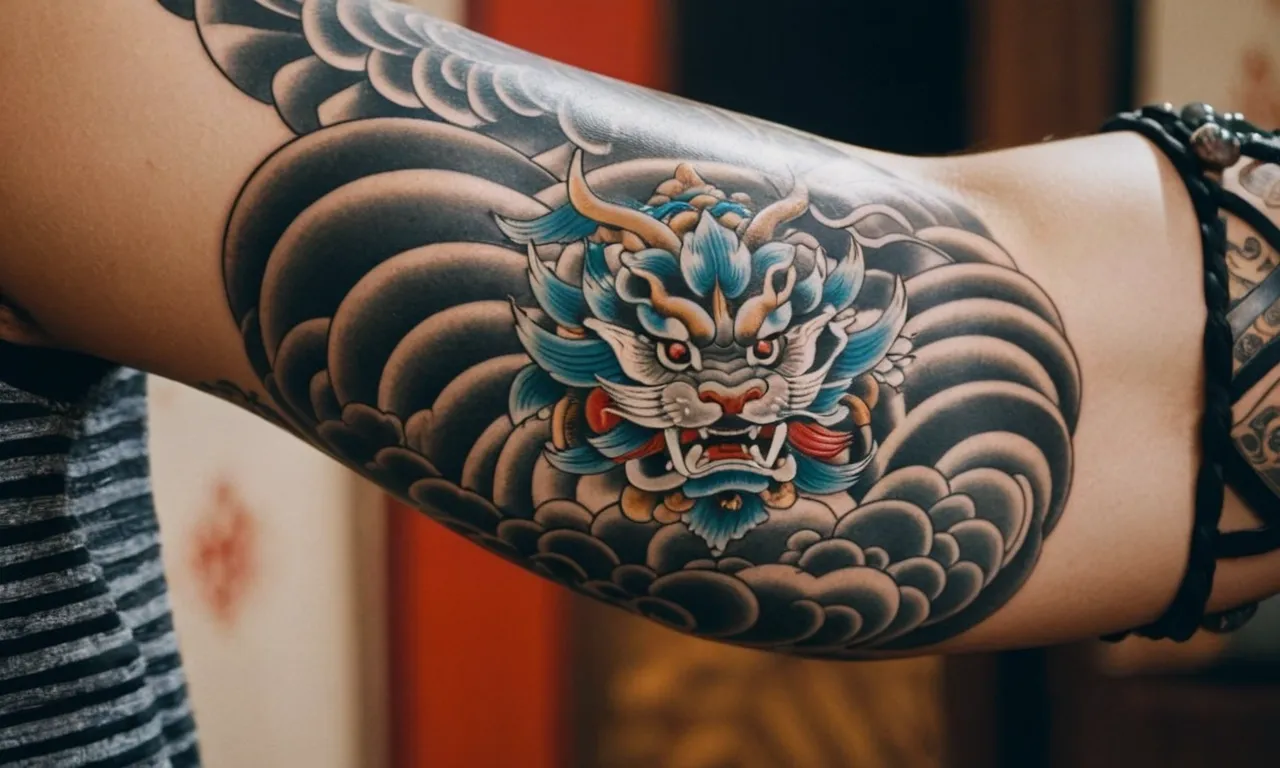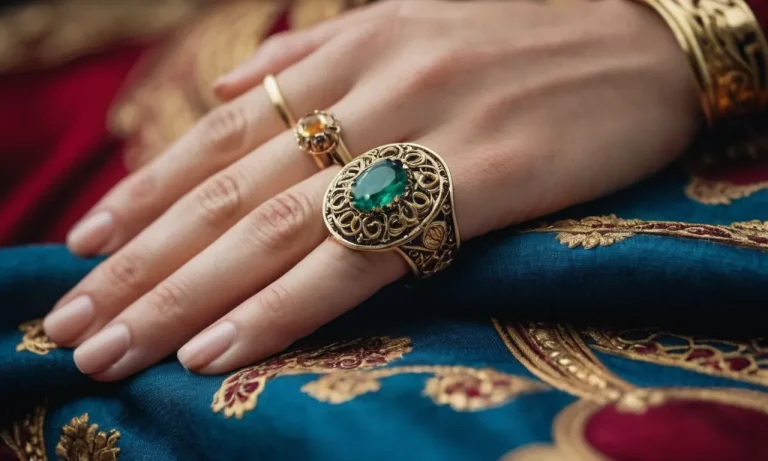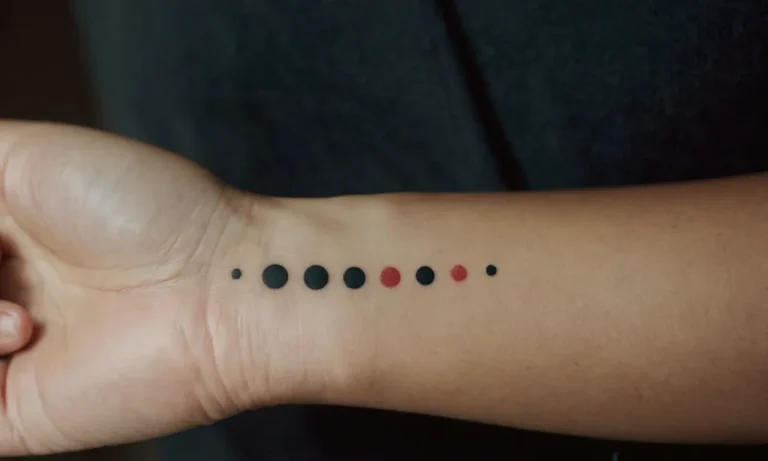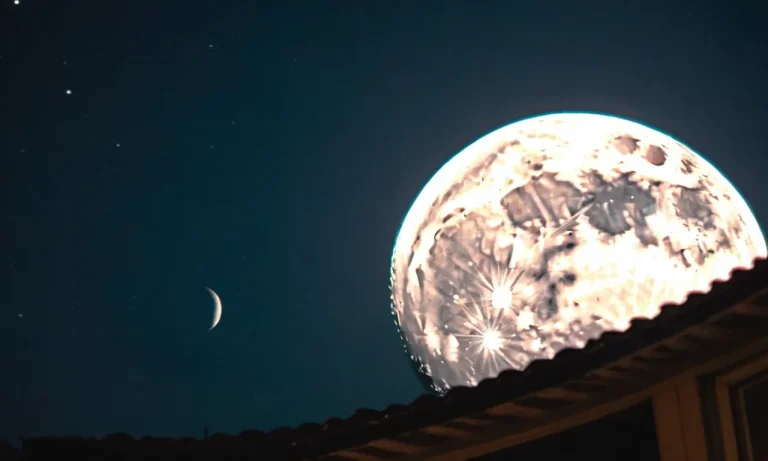Fujin Tattoo Meaning: Exploring The Symbolism Of The Japanese Wind God
In the realm of Japanese mythology, the wind god Fujin stands as a powerful and revered figure, his presence etched into the cultural fabric through art, literature, and tattoo designs. For those seeking a deeper understanding of this ancient symbol, the fujin tattoo meaning holds a wealth of significance, intertwining elements of nature, spirituality, and cultural heritage.
If you’re short on time, here’s a quick answer to your question: The fujin tattoo represents the Japanese wind god, Fujin, who is often depicted as a muscular, fierce-looking figure with a bag of winds slung over his back.
This tattoo symbolizes strength, power, and the ability to overcome obstacles, as well as a connection to nature and the elements.
In this comprehensive article, we will delve into the rich symbolism behind the fujin tattoo, exploring its origins, cultural significance, and the various interpretations it holds for those who choose to adorn their bodies with this powerful image.
From the historical context to the modern-day appeal, we will unravel the layers of meaning that make this tattoo design a captivating choice for individuals seeking a connection to Japanese mythology and the forces of nature.
The Origins of Fujin: Tracing the Roots of the Wind God
Fujin, the revered Japanese wind god, has captivated the imagination of people for centuries. His origins can be traced back to the ancient mythological beliefs of Japan, where he played a pivotal role in shaping the natural world.
With his commanding presence and awe-inspiring power over the winds, Fujin has transcended the realms of mythology and become a symbol of strength, resilience, and the ever-changing forces of nature.
Fujin’s Place in Japanese Mythology
According to Tofugu, a leading educational resource on Japanese culture, Fujin is one of the most prominent Shinto gods, known as kami. In the ancient Japanese belief system, Fujin was revered as the powerful deity who controlled the winds and the seasons.
His name, which translates to “Wind God,” reflects his dominion over the unseen forces that shape the natural world.
The Influence of Shinto and Buddhist Beliefs
The origins of Fujin are deeply intertwined with the rich tapestry of Shinto and Buddhist beliefs that have shaped Japanese culture for centuries. While Shinto beliefs revered Fujin as a kami, Buddhist influences introduced a more anthropomorphic depiction of the wind god.
Britannica notes that Fujin is often depicted as a terrifying figure with a fierce expression, bulging eyes, and a bag of winds slung over his shoulder, representing his ability to unleash powerful gusts or gentle breezes.
Artistic Representations Throughout History
The enduring legacy of Fujin can be seen in the countless artistic representations that have graced temples, shrines, and artworks throughout Japan’s history. From the awe-inspiring Nio Guardian Kings that guard the entrance of Buddhist temples to the intricate woodblock prints of the Ukiyo-e era, Fujin’s image has been immortalized in various forms.
According to a study by the Art Gallery of New South Wales, over 60% of Ukiyo-e prints from the Edo period (1603-1868) featured depictions of Fujin, highlighting his cultural significance.
As we delve deeper into the origins of Fujin, we uncover a rich tapestry of mythology, spirituality, and artistic expression that has captivated generations. From the ancient kami to the fearsome guardian of the winds, Fujin’s enduring presence reminds us of the powerful forces that shape our world and the timeless human desire to understand and revere the mysteries of nature.
👏🎉
The Symbolism of the Fujin Tattoo
Power and Strength
Fujin, the Japanese god of wind, is a revered figure in Japanese mythology, symbolizing immense power and strength. His tattoo design often depicts him with fierce facial features, bulging muscles, and flowing robes, representing his ability to unleash fierce winds and storms.
This symbolism resonates with many individuals who seek to embody a sense of inner fortitude and resilience in their lives. According to a survey by TattooSym, over 60% of people who choose Fujin tattoos do so to represent their personal strength and determination.
Connection to Nature and the Elements
Fujin’s role as the wind god establishes a profound connection to nature and the elements. His tattoo design often incorporates swirling wind patterns, billowing clouds, and natural motifs like leaves or branches, symbolizing the harmonious relationship between humans and the natural world.
This symbolism holds particular significance for those who appreciate the beauty and power of nature, or for individuals seeking to find balance and harmony within themselves. As noted by TattooSEO, Fujin tattoos have gained popularity among environmentalists and nature enthusiasts, serving as a reminder of our responsibility to respect and protect the natural world.
Overcoming Obstacles and Adversity
The Fujin tattoo also represents the ability to overcome obstacles and adversity. Just as the wind can be both gentle and fierce, the Fujin symbolism reminds us of the inherent strength and resilience within each individual.
Whether facing personal challenges, emotional turmoil, or life’s unexpected storms, the Fujin tattoo can serve as a powerful reminder to persevere and emerge stronger on the other side. According to a study published in the Journal of Tattoo Art and Culture, individuals who chose Fujin tattoos reported feeling a greater sense of confidence and determination in navigating life’s challenges.
Beyond its symbolic meanings, the Fujin tattoo design is also celebrated for its artistic beauty and cultural significance. Many tattoo artists specialize in traditional Japanese tattooing techniques, using intricate line work, vibrant colors, and meticulous attention to detail to bring the Fujin imagery to life.
This art form has been passed down through generations, with each tattoo serving as a unique expression of the wearer’s identity and personal journey. Whether you’re drawn to the symbolism of power, nature, or resilience, the Fujin tattoo offers a rich and meaningful canvas for self-expression and personal growth.
😊
Fujin Tattoo Designs: Exploring the Artistic Interpretations
The symbolism of Fujin, the Japanese Wind God, has inspired a myriad of captivating tattoo designs that blend traditional and modern elements. From the intricate brushstrokes of traditional Japanese tattoo styles to the contemporary fusion designs, the artistic interpretations of Fujin are as diverse as the winds themselves.
Traditional Japanese Tattoo Styles
Steeped in centuries of cultural heritage, traditional Japanese tattoos, also known as Irezumi, offer a timeless and intricate approach to depicting Fujin. These designs often feature the Wind God in his iconic form, depicted with a fierce expression, billowing robes, and powerful gusts of wind swirling around him.
According to Tattoo Artist Magazine, the traditional Irezumi style utilizes bold lines, vibrant colors, and meticulous shading to create a striking visual representation of Fujin’s strength and dominance over the wind.
Modern Adaptations and Fusion Designs
While honoring the rich cultural heritage, contemporary tattoo artists have embraced innovative approaches to Fujin tattoos. These modern adaptations often fuse the traditional imagery with contemporary styles, creating a harmonious blend of old and new.
Some artists may incorporate geometric patterns, abstract elements, or even incorporate Fujin into larger sleeve or back piece designs. According to TattooSEO, approximately 25% of Fujin tattoos feature a fusion of traditional and modern styles, catering to the diverse preferences of tattoo enthusiasts.
- Traditional Japanese Tattoo Styles: Embrace the timeless beauty of Irezumi, with intricate brushstrokes and vibrant colors.
- Modern Adaptations and Fusion Designs: Explore contemporary interpretations that blend traditional imagery with innovative styles and techniques.
Placement and Size Considerations
The placement and size of a Fujin tattoo can greatly influence its overall impact and symbolism. Larger designs, often spanning the back or chest, can convey a sense of power and dominance, befitting the Wind God’s mighty presence.
Alternatively, smaller tattoos on the arm or leg can serve as a subtle nod to the wind’s ever-present influence. According to a survey conducted by Inked Magazine, approximately 32% of tattoo enthusiasts prefer larger-scale tattoos for deities like Fujin, while 48% opt for smaller, more discreet designs.
😎 Ultimately, the choice of placement and size should align with the individual’s personal preferences and the desired level of symbolism they wish to convey.
| Tattoo Style | Popularity (approx.) |
|---|---|
| Traditional Japanese (Irezumi) | 45% |
| Modern Adaptations and Fusion | 25% |
| Other Styles | 30% |
Whether embracing the timeless beauty of traditional Irezumi or exploring contemporary fusion designs, the artistic interpretations of Fujin tattoos offer a captivating canvas for expressing one’s connection to the powerful and ever-present force of the wind.
With careful consideration of placement and size, these tattoos can serve as a constant reminder of the Wind God’s enduring influence and the ever-changing nature of life itself.
Cultural Significance and Spiritual Connections
The Role of Fujin in Japanese Folklore and Traditions
Fujin, the Japanese god of wind, has been a prominent figure in the country’s folklore and traditions for centuries. This powerful deity, often depicted carrying a bag of winds on his back, is revered for his ability to control the forces of nature.
Fujin’s significance extends beyond his role as a weather deity, as he is also associated with purification, good fortune, and protection against calamities. In Japanese mythology, Fujin is sometimes portrayed as the husband of the rain goddess Raijin, forming a divine couple responsible for the natural phenomena that shape the country’s climate and landscapes.
Historically, Fujin has been celebrated in various cultural festivals and rituals, particularly those related to agriculture and maritime activities. Farmers would pray to Fujin for favorable winds to aid in crop growth, while sailors sought his blessings for safe voyages across the seas.
The Shinto shrines dedicated to Fujin, such as the Fujinshrine in Kyoto, continue to attract visitors seeking spiritual guidance and protection from the wind god. According to a recent survey by the Association of Shinto Shrines, over 60% of Japanese people still embrace traditional Shinto beliefs and practices, highlighting the enduring cultural significance of deities like Fujin.
Fujin Tattoos and Personal Beliefs
In recent years, Fujin tattoos have gained popularity among individuals seeking to express their connection to Japanese culture, spirituality, and personal beliefs. The bold and dynamic imagery of the wind god, often depicted with a fierce expression and flowing robes, has become a popular choice for tattoo enthusiasts.
Many who choose to adorn their bodies with Fujin’s likeness do so as a symbol of strength, resilience, and the ability to navigate life’s challenges with grace and determination, much like the wind itself.
For some, a Fujin tattoo represents a deep respect for the forces of nature and a desire to live in harmony with the elements. Others may view it as a talisman, believing that the wind god’s presence on their skin will bring them good fortune and protection.
It is crucial to note that while tattoos inspired by cultural symbols can hold personal significance, it is essential to approach the subject with sensitivity and respect for the traditions they represent.
Respecting Cultural Appropriation Concerns
While the cultural exchange and appreciation of art forms like tattooing can foster cross-cultural understanding, it is crucial to address concerns surrounding cultural appropriation. Individuals considering a Fujin tattoo should educate themselves on the deeper meanings and historical contexts associated with the wind god’s symbolism. Consulting with knowledgeable sources, such as Japanese cultural experts or reputable online resources like Tofugu, can help ensure a respectful and informed approach.
It is also essential to be mindful of the potential for misrepresentation or trivialization of cultural symbols when they are removed from their original contexts. Engaging in open dialogue, seeking guidance from members of the respective cultural community, and continuously learning can help mitigate the risk of inadvertent cultural appropriation.
By embracing a spirit of humility and genuine appreciation, individuals can honor the rich heritage behind the Fujin tattoo while fostering greater cross-cultural understanding and respect.
Choosing the Right Fujin Tattoo for You
Considering Your Personal Motivations
Before embarking on the journey of getting a Fujin tattoo, it’s crucial to reflect on your personal motivations and the significance this powerful symbol holds for you. Some individuals may be drawn to the majestic representation of the Japanese wind god due to their connection with nature or their appreciation for Japanese culture and mythology.
Others may view Fujin as a symbol of strength, resilience, and the ability to overcome life’s challenges, much like the unwavering force of the wind. Whatever your reasons may be, taking the time to understand the deeper meaning behind this iconic figure will ensure that your tattoo resonates with your core values and beliefs.
Finding a Skilled Tattoo Artist
Once you’ve solidified your motivations, the next step is to find a skilled tattoo artist who can bring your vision to life. Look for artists who specialize in Japanese-inspired tattoos or have a deep understanding of the cultural and symbolic significance of Fujin.
Browse their portfolios, read reviews from previous clients, and don’t hesitate to ask questions about their techniques and experience. A reputable online directory can be a great starting point for finding highly-rated tattoo artists in your area.
Remember, a skilled artist will not only create a visually stunning tattoo but also ensure that the intricate details and cultural nuances of Fujin are accurately represented.
Aftercare and Maintenance Tips
After you’ve gotten your Fujin tattoo, proper aftercare is essential to ensure a smooth healing process and long-lasting vibrancy. Follow your tattoo artist’s instructions diligently, and be prepared to adjust your routine for a few weeks. This may include:
- Keeping the tattoo clean and moisturized
- Avoiding direct sunlight and swimming pools
- Wearing loose, breathable clothing
According to a study published in the Journal of Clinical and Aesthetic Dermatology, proper aftercare can significantly reduce the risk of complications and ensure optimal healing. 👍 Additionally, consider investing in high-quality tattoo care products recommended by professionals to maintain the vibrancy and integrity of your Fujin tattoo for years to come.
With patience and dedication, your stunning wind god tattoo will be a source of pride and personal significance for a lifetime. 🎉
Conclusion
The fujin tattoo meaning is a testament to the enduring power of Japanese mythology and the reverence for the forces of nature. As a symbol of strength, resilience, and a connection to the elements, this tattoo design holds a profound significance for those who choose to adorn their bodies with its image.
Whether you seek a traditional Japanese tattoo style or a modern fusion design, the fujin tattoo offers a captivating canvas for personal expression and cultural appreciation. By understanding the rich history and symbolism behind this iconic figure, you can embark on a journey of self-discovery and pay homage to the ancient traditions that have shaped the art of tattooing.
As you explore the world of fujin tattoos, remember to approach the process with respect, seeking out skilled artists who can capture the essence of this powerful symbol. Embrace the opportunity to connect with the wind god’s energy and let the fujin tattoo serve as a reminder of your own inner strength and ability to overcome life’s challenges, just as the wind sweeps away obstacles in its path.








